RBS smashes expectations with £940m profit
State-backed bank celebrates half-year success, but shadow hangs over rest of year
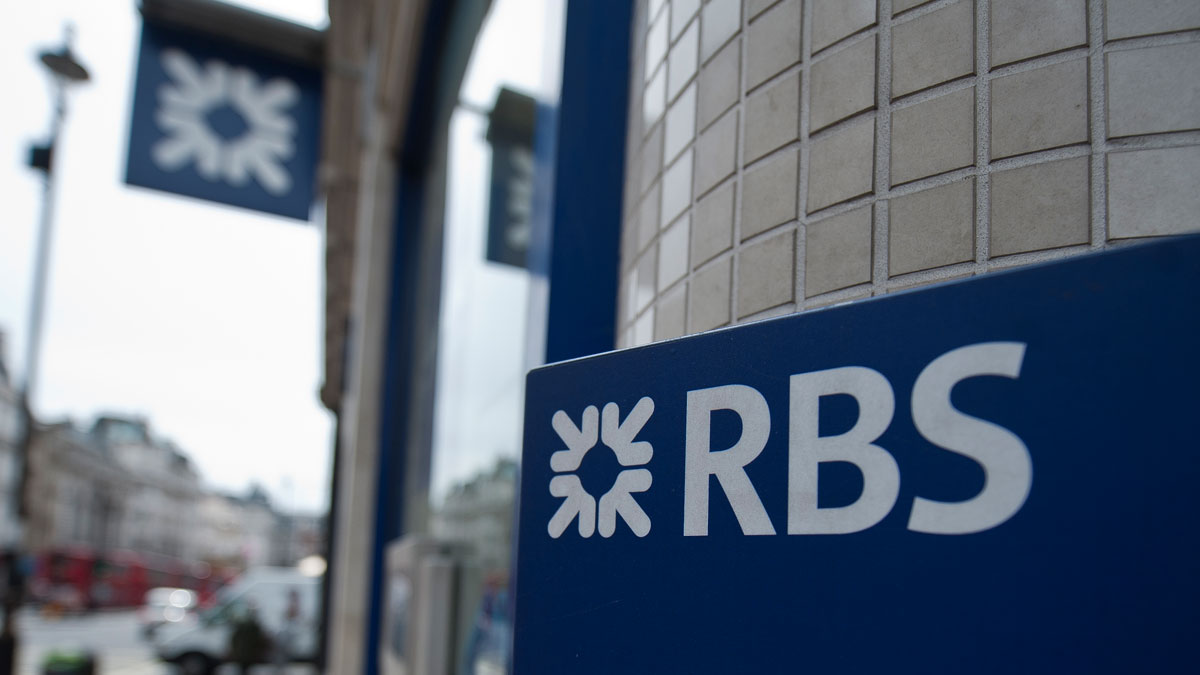
A free daily email with the biggest news stories of the day – and the best features from TheWeek.com
You are now subscribed
Your newsletter sign-up was successful
RBS struggles to avoid £700m court action
5 June
Royal Bank of Scotland's hopes of avoiding an embarrassing day in court and the first public grilling of its former boss Fred Goodwin are on the brink of being dashed.
Reports suggest talks have broken down between the bank and an action group representing 9,000 shareholders who lost money after a £12bn cash call in 2008.
The Week
Escape your echo chamber. Get the facts behind the news, plus analysis from multiple perspectives.

Sign up for The Week's Free Newsletters
From our morning news briefing to a weekly Good News Newsletter, get the best of The Week delivered directly to your inbox.
From our morning news briefing to a weekly Good News Newsletter, get the best of The Week delivered directly to your inbox.
Last month, the state-backed bank last month doubled its original settlement offer to 82p per share, which would be worth about £200m of the £700m the investors are claiming, including lost interest.
According to the Financial Times, the action group wanted to accept this, but a number of "diehard" investors are holding out.
It is also thought that some are determined to force Goodwin to face trial.
However, they need to raise an estimated £7m to fund the court action, which would likely be recouped if they won the case. It is believed they have so far raised £4m.
A free daily email with the biggest news stories of the day – and the best features from TheWeek.com
"If the total has not been reached by Wednesday, when the court reconvenes, the High Court judge may still grant a short adjournment to give the group extra time," says City AM.
As of the end of last week, only 37 per cent of investors were prepared to settle the case, adds the paper. A threshold of 70 per cent by value must agree to make the offer legally binding on remaining claimants.
There is some confusion on this, however. The Guardian says around 80 per cent of investors have settled but that RBS "wanted to get broader agreement to head off further disputes".
Investors claim RBS misled them over its financial strength prior to the fundraising as within six months of the rights issue being completed, the bank was forced to accept a government bailout worth in excess of £45bn.
Almost nine in ten of the shareholders who participated settled their claims for either 41p or 43.5p per share last year.
'Diehard' RBS staff push for Goodwin's day in court
26 May
Royal Bank of Scotland (RBS) could go to trial over its 2008 rights issue after all – meaning former boss Fred Goodwin could face his day in court.
This week the start date for the trial over the £12bn fundraising was delayed three times, most recently to June 8.
Adjournments were granted after RBS doubled its settlement offer to 82p per share – worth in excess of £200m. The counsel for the 9,000 investor claimants suggested this would be sufficient to secure an end to the proceedings.
But today it has emerged that thousands of "diehards" among the shareholder group are intent on taking the case to court come what may.
"The resistance group includes about 4,500 current and former employees who are holding out for a higher price, according to one person briefed on their plans," says the Financial Times.
Another individual investor, John Greenwood, from Huddersfield, said: "I joined the rights issue group on the understanding that the full facts behind the rights offer and what was going on at the time would all come out.
"I wouldn't have joined if we'd settled without the information coming out . . . I'd like to go to court."
Shareholder Neil Mitchell, who previously sued RBS in a separate claim, told The Guardian there was a hardcore group that would not settle under any circumstances.
"For many people, it's never been about money, it's been about principle and justice, and about seeing senior board members of the bank brought to trial," he said.
"There are a lot of pensioners [among the claimants], many of whom are ex-RBS employees.
"When they went to presentations by Goodwin, they weren't just encouraged to put their bonus in, but to put their savings in, even to go and borrow money."
RBS is accused of overstating its financial strength when it raised £12bn from shareholders in 2008, six months before it nearly collapsed and was forced to tap the government for £45bn in a taxpayer-funded rescue.
The bank previously settled with 87 per cent of shareholders last year when it offered 43.5p and a total settlement of £800m.
RBS granted eight more days to settle legal case
24 May
Royal Bank of Scotland has been given a further eight days to settle with hold-out investors over its disputed £12bn capital call in 2008 or finally face its day in court.
Both sides must inform judge Mr Justice Hildyard whether the case has been settled by Thursday 1 June. If there is no deal, the trial will begin a week later.
The case was due to be heard at the High Court on Monday, but successive one-day adjournments have been granted after the bank doubled its settlement offer.
RBS's previous highest offer of 43.5p per share is believed to be less than a fifth of the £700m, plus interest, originally sought by the 9,000 small shareholders and a handful of institutional investors. The new deal is thought to be worth in excess of £200m.
An agreement was looking hopeful yesterday. Jonathan Nash, counsel for the claimants, said the majority "have indicated their willingness to accept".
However, at a hearing this morning, the lawyer said that "while prospects of a settlement remained good more time was needed", says The Guardian.
"Nash said the shareholder group was not able to contact all its members... There were a 'small number of shareholders whose current address does not appear to be correct'."
The Times reported that "diehard shareholders [had] refused to sign up to an out-of-court settlement" and that senior RBS staff were ready to take the case to trial in order to defend the bank.
Investors claim they were misled on the state of the bank's finances during a £12bn fundraising in 2008, which was followed within six months by RBS's near-collapse and £45bn government bailout, and argue they incurred massive losses when shares plummeted following the state rescue.
So far, almost nine out of ten shareholders have settled under an £800m scheme announced by the bank last year.
The case could be highly embarrassing for RBS. It would include the first public grilling of its disgraced former boss, Fred "the Shred" Goodwin, since he appeared before a parliamentary committee in 2009.
RBS set to avoid Fred Goodwin grilling
23 May
Royal Bank of Scotland looks set to avoid a potentially damaging court case that would have seen its disgraced former chief executive Fred "the Shred" Goodwin publicly grilled.
An 11th-hour adjournment was secured yesterday. It has now been extended for another day after the counsel for the 9,000 investor claimants said most were ready to settle, according to Sky News.
Jonathan Nash QC told a hearing on Tuesday: "The majority of claimants have indicated their willingness to accept the latest offer from the defendant."
"There now appears to be a good prospect that within the course of today the remaining claimants, or nearly all, will confirm they also agree in principle so as to bring a practical end to proceedings."
The claimants are the mostly smaller investors who refused two offers of 41p and 43.5p per share last year to settle their claims over RBS's £12bn rights issue in 2008.
They represent around 13 per cent of the investor base for that fundraising and were seeking £700m including interest. They now look set to agree a settlement that Sky says is worth north of £200m.
The original offer is said to be worth less that 20 per cent of the amount demanded. The new offer is worth double what was originally on the table.
Investors argue that RBS misled them on the rights issue by not revealing how precarious its finances had become.
Just months after the fundraising, the bank needed a £45bn government bailout. Its share price collapsed, leaving shareholders nursing big losses. Almost nine out of ten settled when the first offers were made.
Goodwin's day in court would have been a field day for the press. The former RBS boss garnered a reputation for ruthlessness during his time at the helm of the bank as it rose to become the biggest in the world.
Goodwin was eventually stripped of his knighthood in 2012 over his role in the banking crisis.
RBS delays Fred 'the Shred' Goodwin's day in court
22 May
Royal Bank of Scotland has secured a one-day reprieve on what could prove to be a damaging court case that would see its disgraced former boss Fred "the Shred" Goodwin take the stand.
In an 11th-hour intervention, the bank is believed to have doubled its offer to the 9,000 investors who have so-far refused to settle over its £12bn rights issue in 2008, which failed to prevent RBS, then under the leadership of Goodwin, needing a £45bn bailout just months later.
Following the government intervention, shares in RBS crashed, hitting investors who had taken part in the rights issue. They now claim they were deliberately mislead as the bank did not make its financial position clear. The bank denies any wrongdoing.
RBS, which last year set aside £800m to settle the claims, originally offered 41p per share, which it later upped to 43.5p. So far 87 per cent of shareholders have signed up, says the Daily Telegraph.
The investors are holding out for £700m, including interest. However, Liberal Democrat former business secretary Sir Vince Cable said 43.5p covered "less than a quarter" of that amount, says Sky News. That would amount to around £140m.
This has now reportedly been doubled and the court case adjourned with the agreement of all sides who are "hopeful of making progress" towards a final settlement, says the BBC.
Goodwin, who earned his nickname for cutting staff across the bank's divisions during its massive global expansion, has never spoken publicly about his role at RBS since addressing MPs on the Treasury select committee in 2009.
-
 The ‘ravenous’ demand for Cornish minerals
The ‘ravenous’ demand for Cornish mineralsUnder the Radar Growing need for critical minerals to power tech has intensified ‘appetite’ for lithium, which could be a ‘huge boon’ for local economy
-
 Why are election experts taking Trump’s midterm threats seriously?
Why are election experts taking Trump’s midterm threats seriously?IN THE SPOTLIGHT As the president muses about polling place deployments and a centralized electoral system aimed at one-party control, lawmakers are taking this administration at its word
-
 ‘Restaurateurs have become millionaires’
‘Restaurateurs have become millionaires’Instant Opinion Opinion, comment and editorials of the day
-
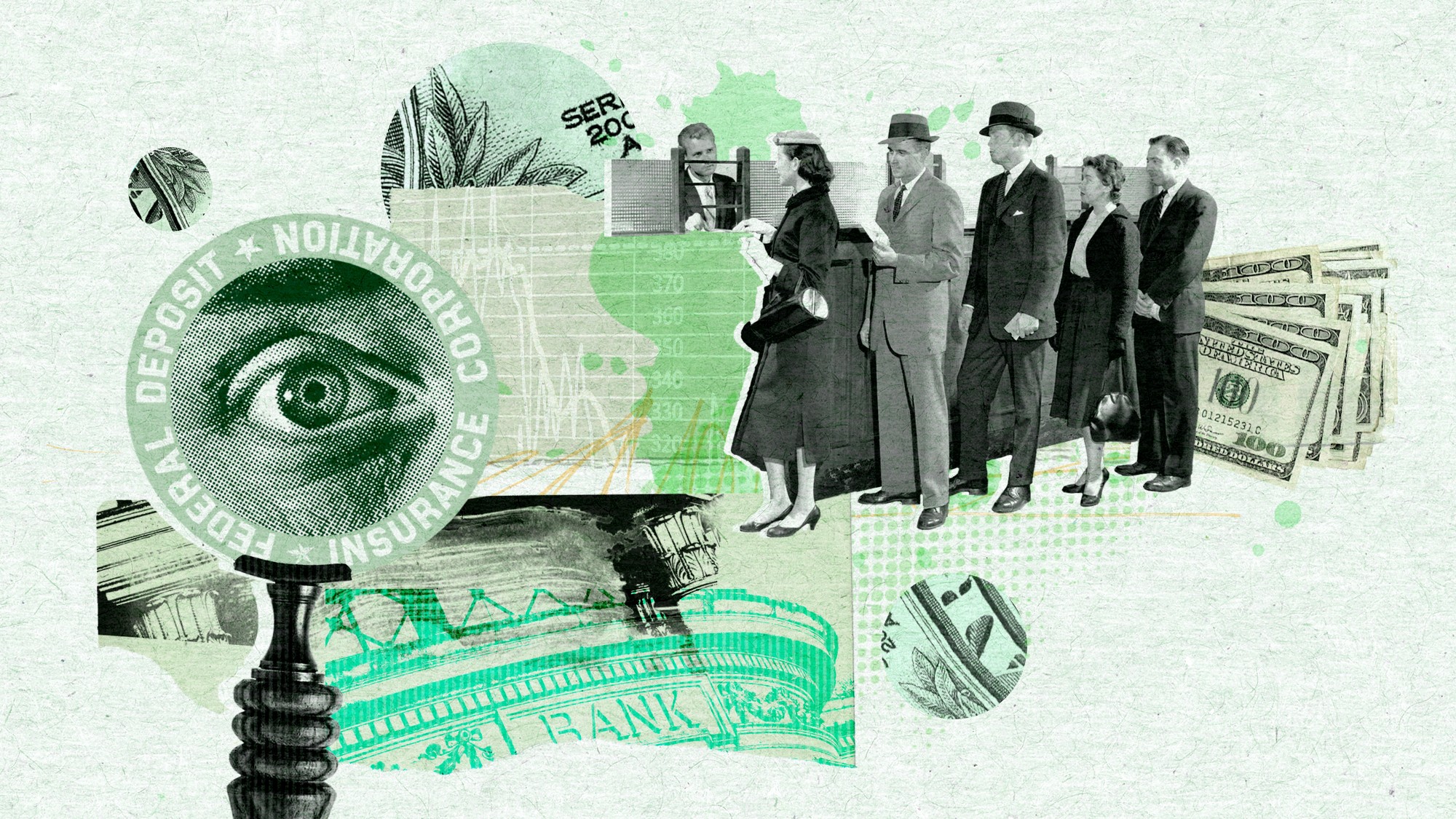 What does the FDIC do?
What does the FDIC do?In the Spotlight The Federal Deposit Insurance Corporation is now a 'Trump target'
-
 TD Bank accepts $3B fine over money laundering
TD Bank accepts $3B fine over money launderingSpeed Read The US retail bank pleaded guilty to multiple criminal charges
-
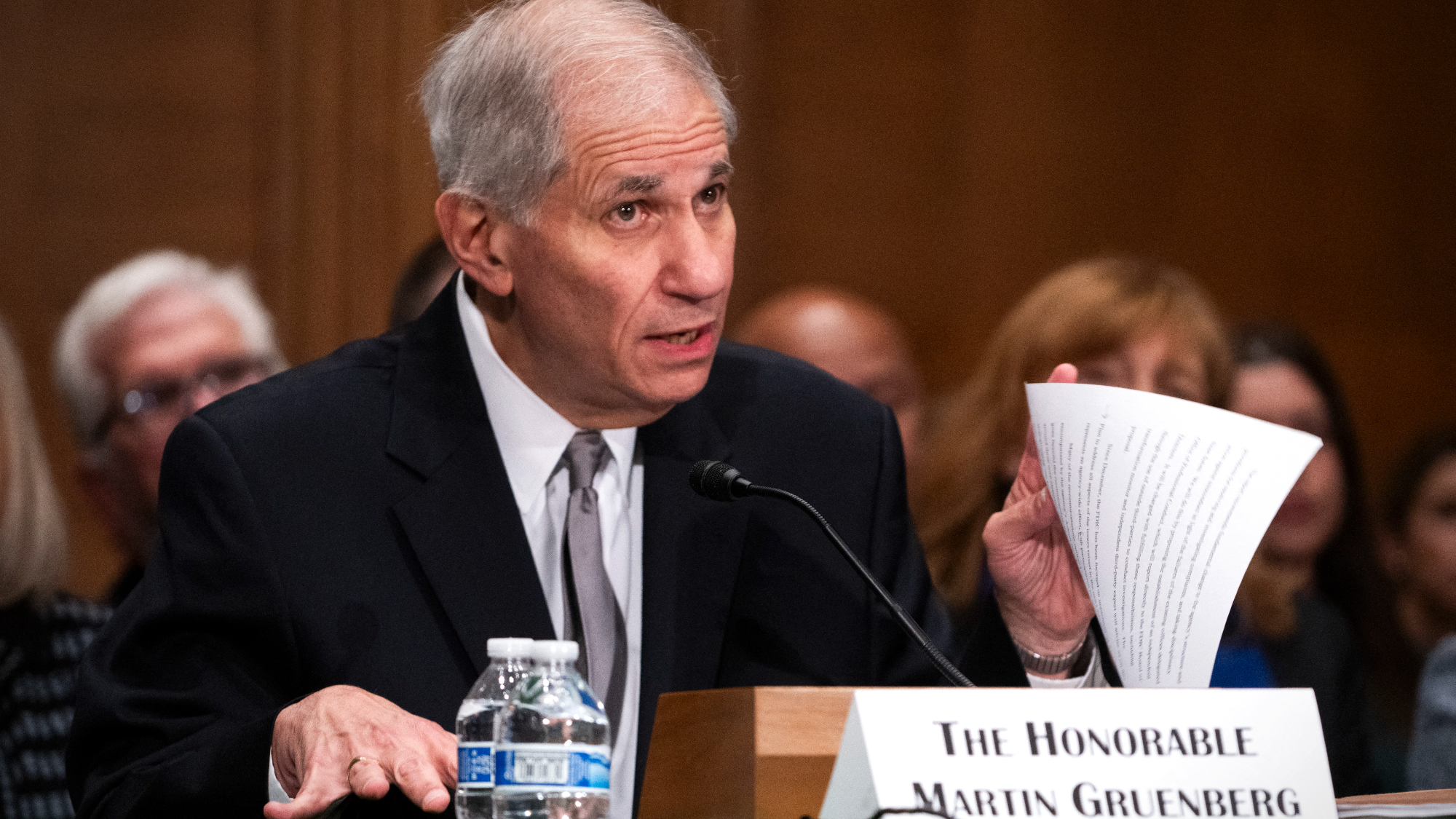 FDIC chair out after toxic work culture report
FDIC chair out after toxic work culture reportSpeed Read The report revealed a trend of sexual harassment and discrimination at the Federal Deposit Insurance Corporation
-
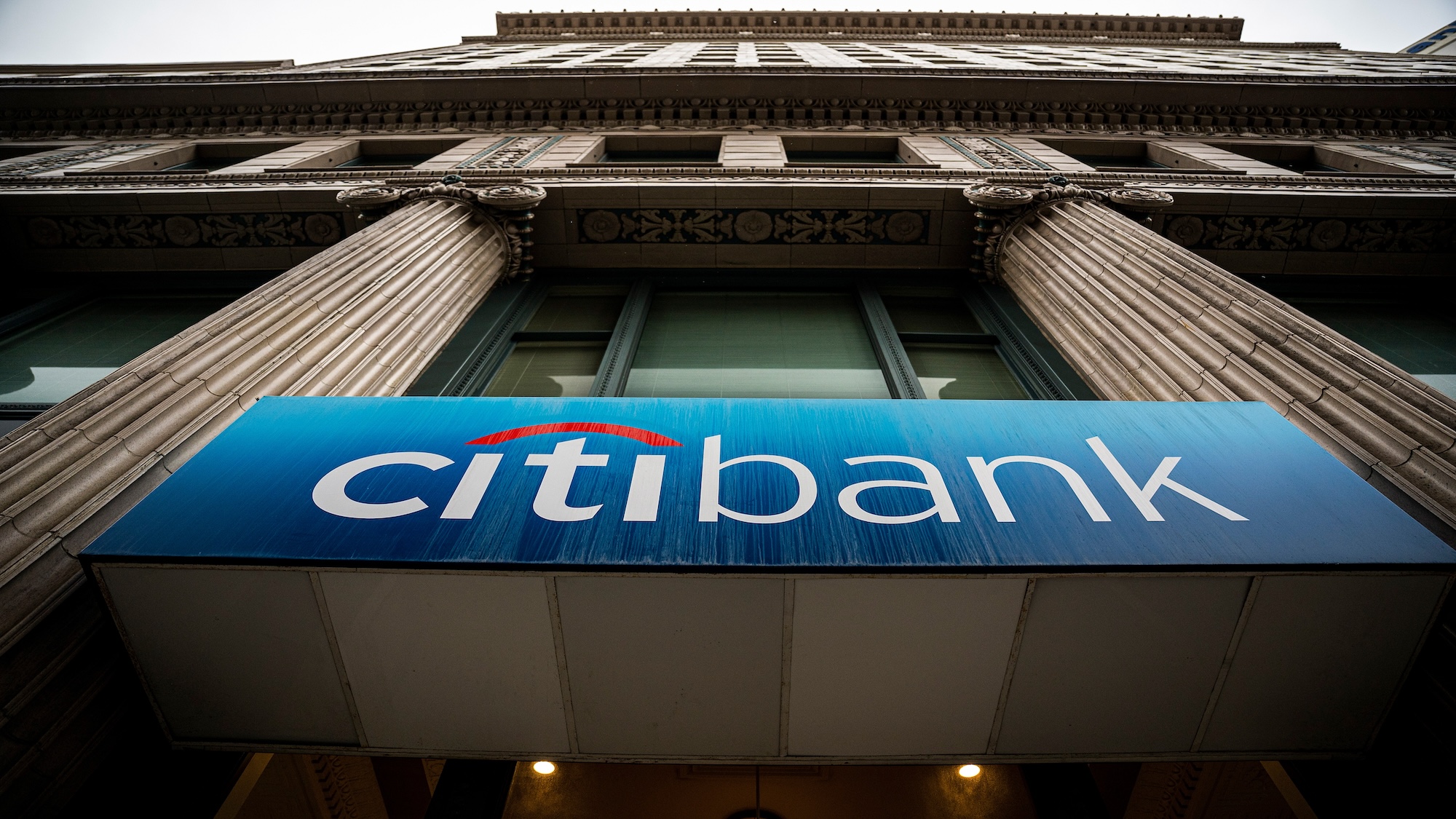 Citibank to cut off online access for customers who don't go paperless
Citibank to cut off online access for customers who don't go paperlessSpeed Read The bank will shut off the customer's access to both their online website and mobile app
-
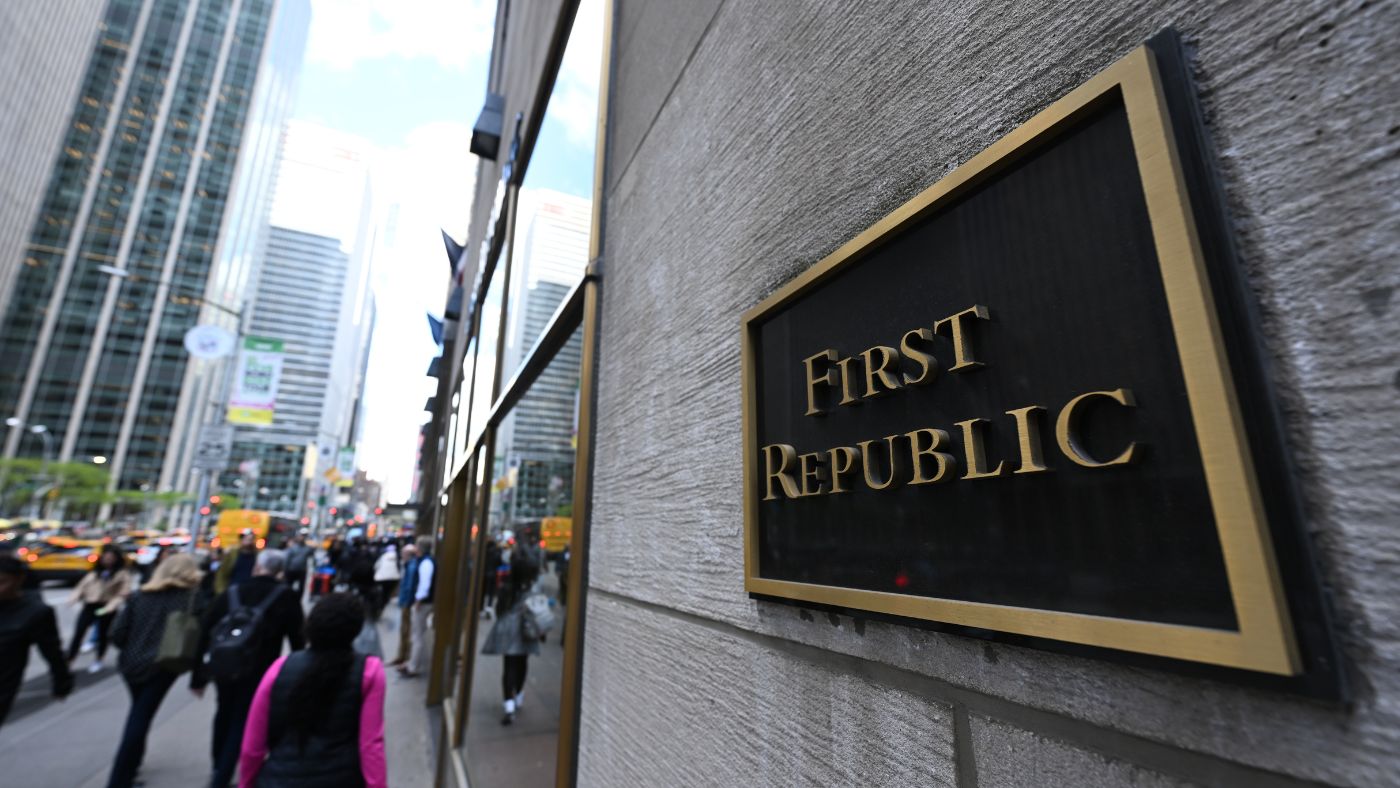 First Republic: will UK banks survive unscathed?
First Republic: will UK banks survive unscathed?Under the Radar US shares dip after collapse of third regional bank, but experts say contagion to the UK is unlikely
-
 Banking crisis: has the city weathered the financial storm?
Banking crisis: has the city weathered the financial storm?Talking Point The financial storm appears to have abated, but no one’s ruling out more squalls along the way
-
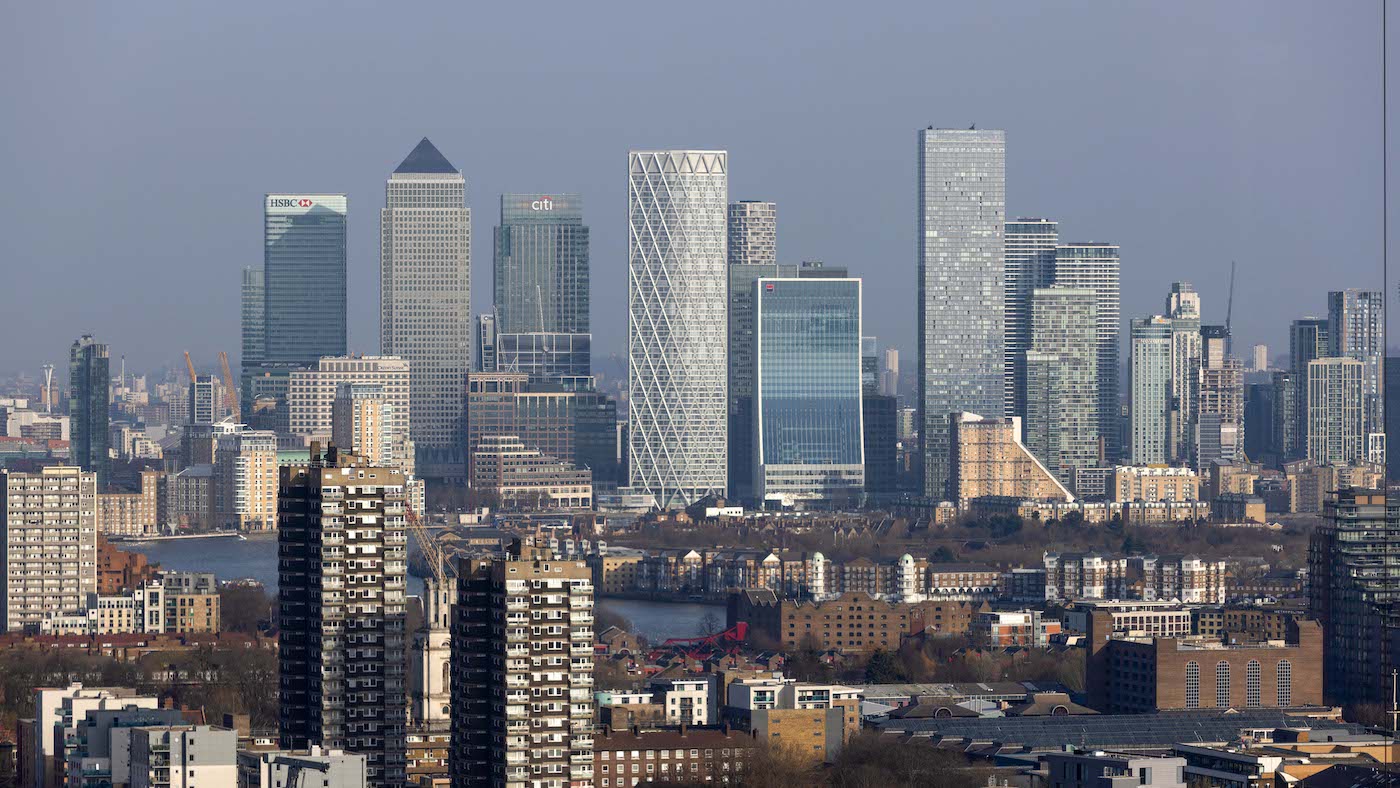 Should the UK relax bank ring-fencing rules?
Should the UK relax bank ring-fencing rules?Talking Point Treasury minister said he hopes to ‘boost competitiveness’ in the City with easing of regulations
-
 Should caps on bankers’ bonuses be scrapped?
Should caps on bankers’ bonuses be scrapped?Talking Point New chancellor Kwasi Kwarteng believed to be planning contentious move to ‘boost the City’